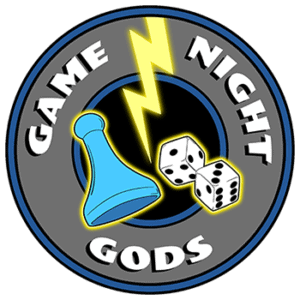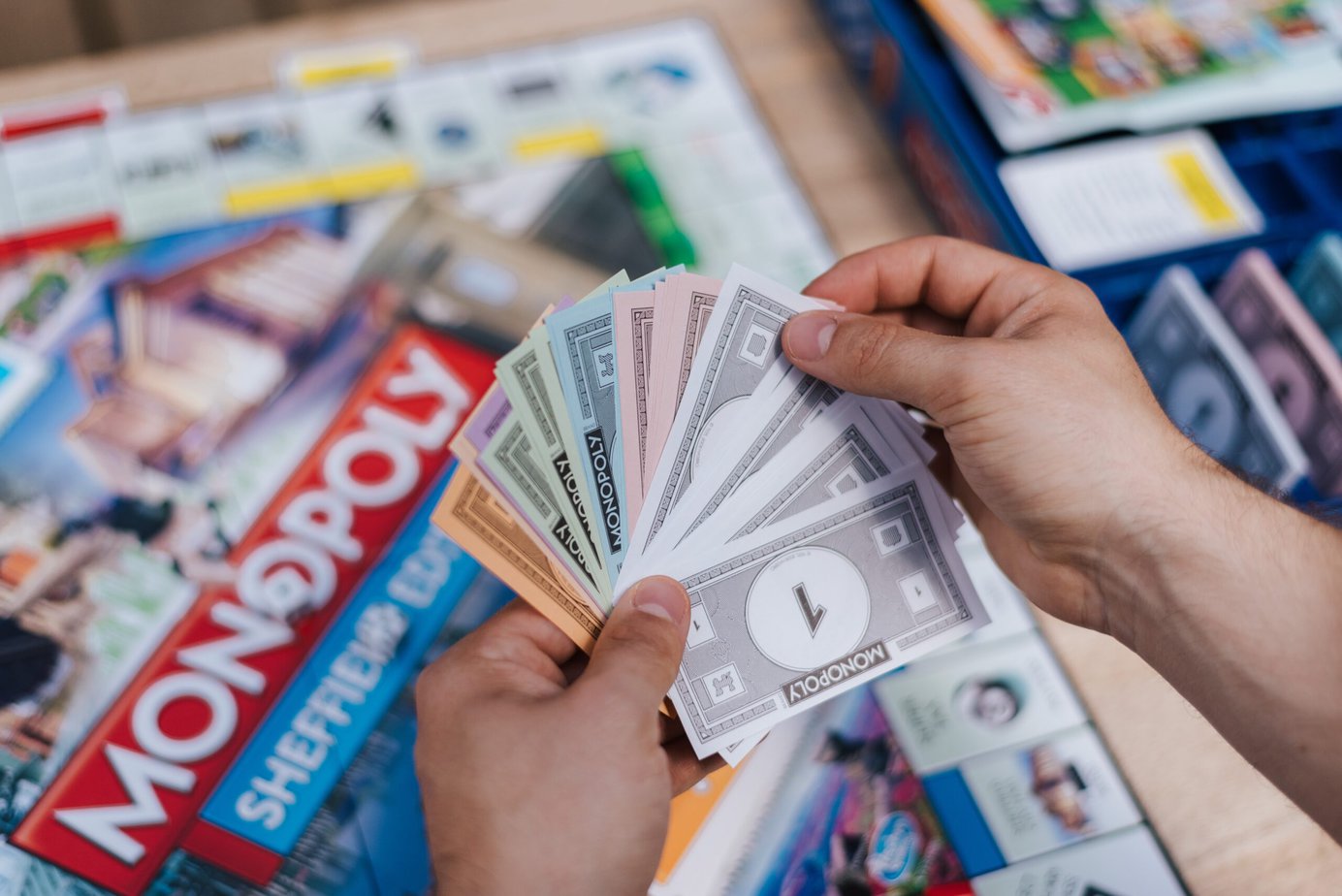Board games have been a popular form of entertainment for decades, and one of the most well-known games is Monopoly. Families and friends have enjoyed this classic game for generations, but sometimes players may want to try something new. You may have played Monopoly so often that you can recite the property values and chance cards by heart, or you’re looking for a game that offers a similar experience with a fresh twist. Whatever the reason, if you’re looking for board games like Monopoly, you’re in luck!
Many games out there share some elements as Monopoly, such as resource management, property ownership, and chance elements. These games offer a variety of themes, mechanics, and player interactions that can keep things fresh and exciting, even if you’ve played Monopoly dozens of times before.
From city-building games to trading simulations, a wide range of board games can scratch that Monopoly itch while providing a unique and engaging experience. This article will explore some of the best board games like Monopoly.
Board Games Like Monopoly
We’ve handpicked 13 games that share some key features that make Monopoly such a classic while offering something new and exciting for players to enjoy.
Whether you’re a seasoned board gamer or just starting, these games will provide hours of entertainment and strategy. So, let’s dive in and explore the world of board games beyond Monopoly!
1. Underwater Cities
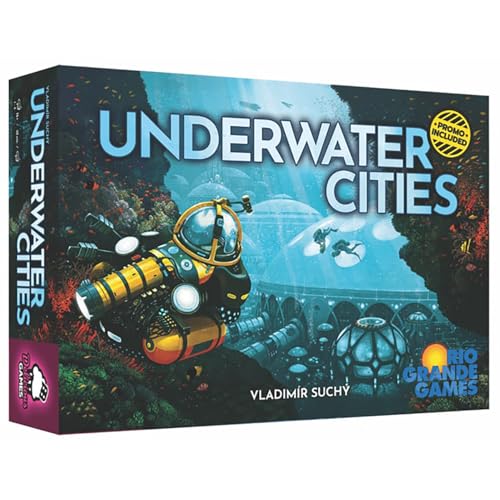
Underwater Cities is a board game that combines resource management and city-building mechanics. Players take on the role of rival corporations competing to build the most prosperous underwater city. The game is played over three rounds. Each round consists of several phases where players must gather resources, build structures, and manage their population.
One of the key similarities between Underwater Cities and Monopoly is the emphasis on resource management. In Monopoly, players must carefully manage their money and properties to generate income and outsmart their opponents. Similarly, in Underwater Cities, players must balance their food, energy, and materials production to sustain their city and score points.
Another similarity is the use of structures and buildings to enhance player abilities and generate benefits. In Monopoly, players purchase properties to increase their income and gain advantages over opponents. In Underwater Cities, players can build various structures that provide bonuses, such as increased resource production or different actions. However, building these structures requires careful planning and resource management, like in Monopoly.
Overall, Underwater Cities offers a unique and engaging take on the city-building genre, focusing on resource management and strategic planning that will appeal to Monopoly fans.
2. Acquire

Acquire is a classic board game that has been around since the 1960s. It is a strategy game involving buying and selling hotel chain stocks. The game aims to become wealthier by owning valuable stocks and properties.
One of the key similarities between Acquire and Monopoly is the emphasis on property ownership and strategic planning. In both games, players must acquire properties or stocks to generate income and gain advantages over opponents. However, unlike Monopoly, where players can purchase properties at any time, in Acquire, players must wait until specific hotel chains are formed before buying stocks.
Another similarity is the use of chance elements. In Monopoly, players draw Chance and Community Chest cards that can either help or hinder their progress. In Acquire, players draw tiles representing hotel chains they can invest in. However, the tiles are randomly drawn, so players must adapt their strategies based on the available options.
Acquire is an excellent choice for Monopoly fans who enjoy the game’s strategic planning and property ownership aspects. With its unique stock market mechanics and emphasis on timing and opportunity, Acquire offers a fresh take on the genre that will keep players engaged and entertained.
3. Pay Day

Pay Day is a classic board game that has existed since the 1970s. It is a family-friendly game that simulates the financial challenges of managing a monthly budget. The game’s objective is to have the most money at the end of the month while paying off bills and avoiding financial setbacks.
One of the key similarities between Pay Day and Monopoly is the emphasis on managing money and resources. In both games, players must make strategic decisions to generate income, pay off debts, and avoid financial setbacks. However, unlike Monopoly, where players can purchase properties and charge rent, in Pay Day, players must manage their monthly income and expenses to stay afloat.
Another similarity is the use of chance elements. In Monopoly, players draw Chance and Community Chest cards that can either help or hinder their progress. In Pay Day, players draw Mail cards representing unexpected expenses or windfalls that can increase or decrease their cash flow.
Pay Day is an excellent choice for Monopoly fans who enjoy the game’s financial management and resource allocation aspects. With its simple mechanics and family-friendly theme, Pay Day is a perfect option for players of all ages and skill levels who want a fun and engaging game that simulates the challenges of managing a monthly budget.
4. Dice City

Dice City is a strategy board game that combines dice rolling, resource management, and city-building mechanics. The game aims to build the most prosperous and powerful city by managing resources, constructing buildings, and expanding your territory.
One of the key similarities between Dice City and Monopoly is the emphasis on resource management and strategic planning. In both games, players must carefully manage their resources to generate income and outmaneuver their opponents. In Dice City, players roll dice to generate resources like food, gold, and wood, which they can use to construct buildings and upgrade their city.
Another similarity is the use of buildings to generate bonuses and benefits. In Monopoly, players purchase properties to increase their income and gain advantages over opponents. In Dice City, players can construct buildings that provide various benefits, such as increased resource production or extra dice rolls. However, producing these buildings requires careful planning and resource management, like in Monopoly.
Dice City offers a fresh and engaging take on the city-building genre, focusing on dice rolling and resource management that will appeal to Monopoly fans. The game’s unique mechanics and strategic depth make it an excellent choice for players who enjoy complex and challenging games that require careful planning and resource allocation.
5. Catan

Catan is a popular board game that has been around since the 1990s. It is a strategy game that involves resource management, trading, and settlement building. The game aims to be the first player to accumulate ten victory points by building settlements, cities, and roads and trading with other players.
One of the key similarities between Catan and Monopoly is the emphasis on resource management and strategic planning. In both games, players must carefully manage their resources to generate income and outmaneuver their opponents. In Catan, players must collect resources like brick, lumber, and wheat to build settlements, cities, and roads.
Another similarity is the use of trading to gain advantages. In Monopoly, players can trade properties and money to gain an edge over their opponents. In Catan, players can trade resources with other players to gain access to the resources they need to build their settlements and cities.
Catan is an excellent choice for Monopoly fans who enjoy resource management, strategic planning, and trading mechanics. The game’s unique mechanics and emphasis on social interaction make it an excellent choice for players who enjoy games that involve negotiation and diplomacy. With its simple rules and deep strategy, Catan offers a fresh and engaging take on the genre that will keep players coming back for more.
6. Ticket to Ride

Ticket to Ride is a popular board game that has won numerous awards since its release in 2004. It is a strategy game that involves building train routes across North America, collecting sets of cards, and completing objectives. The game aims to score the most points by completing routes and fulfilling objectives.
One of the key similarities between Ticket to Ride and Monopoly is the emphasis on building and controlling infrastructure. In both games, players must make strategic decisions to control territory and build infrastructure. Players build train routes across the map to connect cities and score points in Ticket to Ride.
Another similarity is the use of cards to gain advantages. In Monopoly, players can collect sets of properties to increase their income and acquire advantages over their opponents. In Ticket to Ride, players collect sets of train cards to build their routes and complete objectives.
Ticket to Ride is an excellent choice for Monopoly fans who enjoy building and controlling infrastructure, collecting sets of cards, and completing objectives. The game’s unique mechanics and emphasis on strategy make it an excellent choice for players who enjoy games that require careful planning and resource management.
7. Century Spice Road
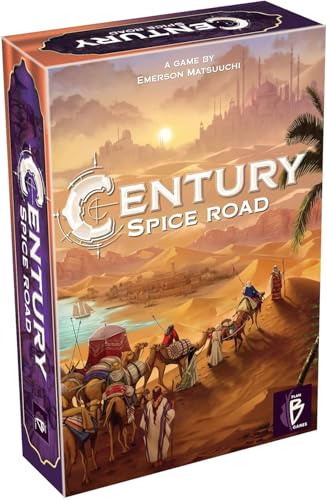
Century Spice Road is a strategy board game that involves resource management, trading, and engine building. The game aims to be the player with the most victory points by acquiring and trading spices, constructing buildings, and fulfilling orders.
One of the key similarities between Century Spice Road and Monopoly is the emphasis on resource management and strategic planning. In Century Spice Road, players must collect and trade spices to fulfill orders and gain victory points. In both games, players must carefully manage their resources to generate income and outmaneuver their opponents.
Another similarity is the use of engine building to generate bonuses and benefits. In Monopoly, players can purchase properties to increase their income and gain advantages over opponents. In Century Spice Road, players can construct buildings and acquire cards that provide various benefits, such as increased resource production or extra card draws. However, producing these buildings and acquiring cards requires careful planning and resource management, just like in Monopoly.
Century Spice Road offers a fresh and engaging take on the resource management and trading genre, focusing on engine building and strategic planning that will appeal to Monopoly fans. The game’s unique mechanics and strategic depth make it an excellent choice for players who enjoy complex and challenging games that require careful planning and resource allocation.
8. The Game of Life

The Game of Life is a classic board game that has existed since the 1960s. It is a game that simulates life experiences, including college, careers, marriage, and children. The game’s objective is to accumulate the most money and assets by the end of the game.
One of the key similarities between The Game of Life and Monopoly is the emphasis on accumulating wealth and assets. In both games, players must make strategic decisions to increase their income and gain advantages over their opponents. In The Game of Life, players make choices about their careers and investments to accumulate money and assets.
Another similarity is the use of chance and luck to determine outcomes. In Monopoly, players roll dice to move around the board and determine their fate. In The Game of Life, players spin a wheel to determine their future and the outcome of their decisions.
The Game of Life is an excellent choice for Monopoly fans who enjoy games that simulate real-life experiences and involve making strategic decisions to accumulate wealth and assets. The game’s unique mechanics and emphasis on chance and luck make it an excellent choice for players who enjoy games that require skill and luck. With its classic gameplay and nostalgic feel, The Game of Life offers a fun and engaging take on the genre that will appeal to Monopoly fans.
9. Concordia

Concordia is a strategy board game that involves resource management, trading, and card play. The game aims to acquire victory points by controlling territory, building infrastructure, and fulfilling objectives.
One of the key similarities between Concordia and Monopoly is the emphasis on territory control and resource management. In both games, players must make strategic decisions to control territory and manage their resources effectively. In Concordia, players must control various regions of the map to gain resources and fulfill objectives.
Another similarity is the use of cards to gain advantages. In Monopoly, players can collect sets of properties to increase their income and gain advantages over their opponents. In Concordia, players can acquire and play various cards that provide benefits, such as extra actions or resource production.
Concordia offers a fresh and engaging take on the territory control and resource management genre, focusing on card play and strategic planning that will appeal to Monopoly fans. The game’s unique mechanics and strategic depth make it an excellent choice for players who enjoy complex and challenging games that require careful planning and resource allocation. With its deep strategy and engaging gameplay, Concordia offers a rewarding and satisfying gaming experience that keeps players returning for more.
10. Machi Koro

Machi Koro is a fast-paced card game that involves resource management, city building, and dice rolling. The game aims to build a prosperous city and become the first player to construct all required landmarks.
One of the key similarities between Machi Koro and Monopoly is the emphasis on resource management and strategic planning. In both games, players must carefully manage their resources to generate income and outmaneuver their opponents. In Machi Koro, players must acquire and develop various types of buildings to generate revenue and construct landmarks.
Another similarity is the use of dice to determine outcomes. In Monopoly, players roll dice to move around the board and determine their fate. In Machi Koro, players roll dice to generate income and activate the effects of their buildings.
Machi Koro offers a fun and engaging take on the resource management and city-building genre, with a focus on dice rolling and strategic planning that will appeal to Monopoly fans. The game’s fast-paced gameplay and engaging mechanics make it an excellent choice for players who enjoy games that are easy to learn and quick to play. With its colorful artwork and engaging gameplay, Machi Koro offers a unique and exciting gaming experience that will keep players coming back for more.
11. Lords of Vegas

Lords of Vegas is a board game that involves city building, gambling, and area control. The game aims to build the most successful and profitable casinos and dominate the Las Vegas Strip.
One of the key similarities between Lords of Vegas and Monopoly is the emphasis on area control and strategic planning. In both games, players must acquire and develop properties to generate income and outmaneuver their opponents. In Lords of Vegas, players must build and manage casinos to generate income and gain control of different areas of the Las Vegas strip.
Another similarity is the use of chance and luck to determine outcomes. In Monopoly, players can land on various spaces with different benefits or penalties. In Lords of Vegas, players roll dice to determine the consequences of their actions, such as the success or failure of a casino.
Lords of Vegas offers a unique and engaging take on the city-building and gambling genre, focusing on area control and strategic planning that will appeal to Monopoly fans. The game’s colorful and immersive theme and engaging mechanics make it an excellent choice for players who enjoy games that offer a mix of strategy and luck. With its exciting gameplay and immersive theme, Lords of Vegas is a game that will provide hours of entertainment and enjoyment for Monopoly fans.
12. Carcassonne
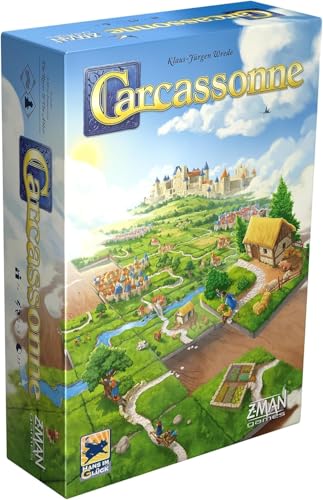
Carcassonne is a board game that involves tile-laying and area control. The game aims to build medieval France’s most successful and well-developed city.
One of the key similarities between Carcassonne and Monopoly is the emphasis on strategic planning and area control. In both games, players must carefully manage their resources and outmaneuver their opponents to gain control of different areas. In Carcassonne, players lay tiles to construct a city and place their followers to gain control of the other regions.
Another similarity is the use of chance and luck to determine outcomes. In Monopoly, players can land on various spaces that provide different benefits or penalties. In Carcassonne, players draw tiles randomly and must make strategic decisions on where to place them.
Carcassonne offers a unique and engaging take on the tile-laying and area-control genre, focusing on strategic planning that will appeal to Monopoly fans. The game’s immersive and intricate mechanics and colorful and detailed artwork make it an excellent choice for players who enjoy games that require careful planning and attention to detail. With its exciting gameplay and engaging theme, Carcassonne is a game that will provide hours of entertainment and enjoyment for Monopoly fans.
Board Games Like Monopoly Conclusion
In conclusion, many board games like Monopoly offer unique and engaging gameplay experiences. From the strategic planning and area control of games like Carcassonne and Lords of Vegas to the city-building and economic management of games like Underwater Cities and Power Grid, there is something for every type of player.
Whether you’re a seasoned board gamer or just getting started, exploring these games can be a fun and rewarding experience. Each game offers challenges and mechanics that require careful planning and strategic thinking, providing players with hours of entertainment and enjoyment.
So the next time you’re looking for a new board game, consider exploring some of the games on this list. Their engaging themes, exciting gameplay, and intricate mechanics offer a unique and rewarding gaming experience that will delight Monopoly fans and board gamers alike.
